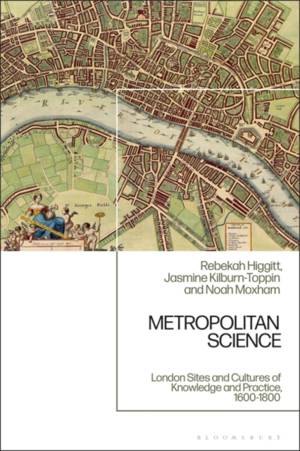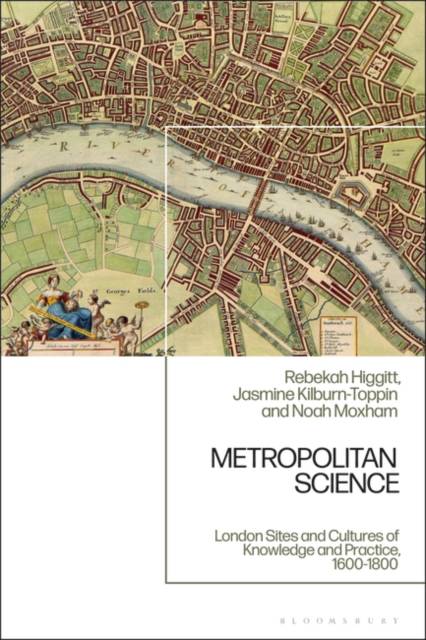
- Retrait gratuit dans votre magasin Club
- 7.000.000 titres dans notre catalogue
- Payer en toute sécurité
- Toujours un magasin près de chez vous
- Retrait gratuit dans votre magasin Club
- 7.000.0000 titres dans notre catalogue
- Payer en toute sécurité
- Toujours un magasin près de chez vous
Metropolitan Science
London Sites and Cultures of Knowledge and Practice, C. 1600-1800
Rebekah Higgitt, Jasmine Kilburn-Toppin, Noah Moxham
Livre relié | Anglais
129,95 €
+ 259 points
Description
Exploring distinctive practices in the artisanal, mercantile, and governmental sites of London, Metropolitan Science offers a new perspective on the development of a scientific culture between the years 1600-1800.
Beginning with the demographics of London in the 17th and 18th centuries, including its attraction of migrants, importance as a centre of empire, and the role of its institutions in government, the authors analyse how and why London was a unique site of scientific activity. Through the use of case studies, such as the Tower of London's Royal Mint, and the Livery Company Halls, this book examines the city's sites of exchange for knowledge and practice, and highlights the importance of both public and private spaces. With exploration of London's military and colonial history, the authors acknowledge how its port and maritime trade were not only central to growth and protection, but also facilitated the organisation, assessment, valuation, and pursuit of knowledge in the city. Ultimately, this book demonstrates that London corporations produced unique knowledge communities that drew on networks across the city and beyond, and uses a variety of spatial and material approaches to reveal the use, representation, and exchange of practice in these collective settings.Spécifications
Parties prenantes
- Auteur(s) :
- Editeur:
Contenu
- Nombre de pages :
- 240
- Langue:
- Anglais
Caractéristiques
- EAN:
- 9781350417038
- Date de parution :
- 19-09-24
- Format:
- Livre relié
- Format numérique:
- Genaaid
- Dimensions :
- 156 mm x 234 mm
- Poids :
- 453 g

Les avis
Nous publions uniquement les avis qui respectent les conditions requises. Consultez nos conditions pour les avis.






